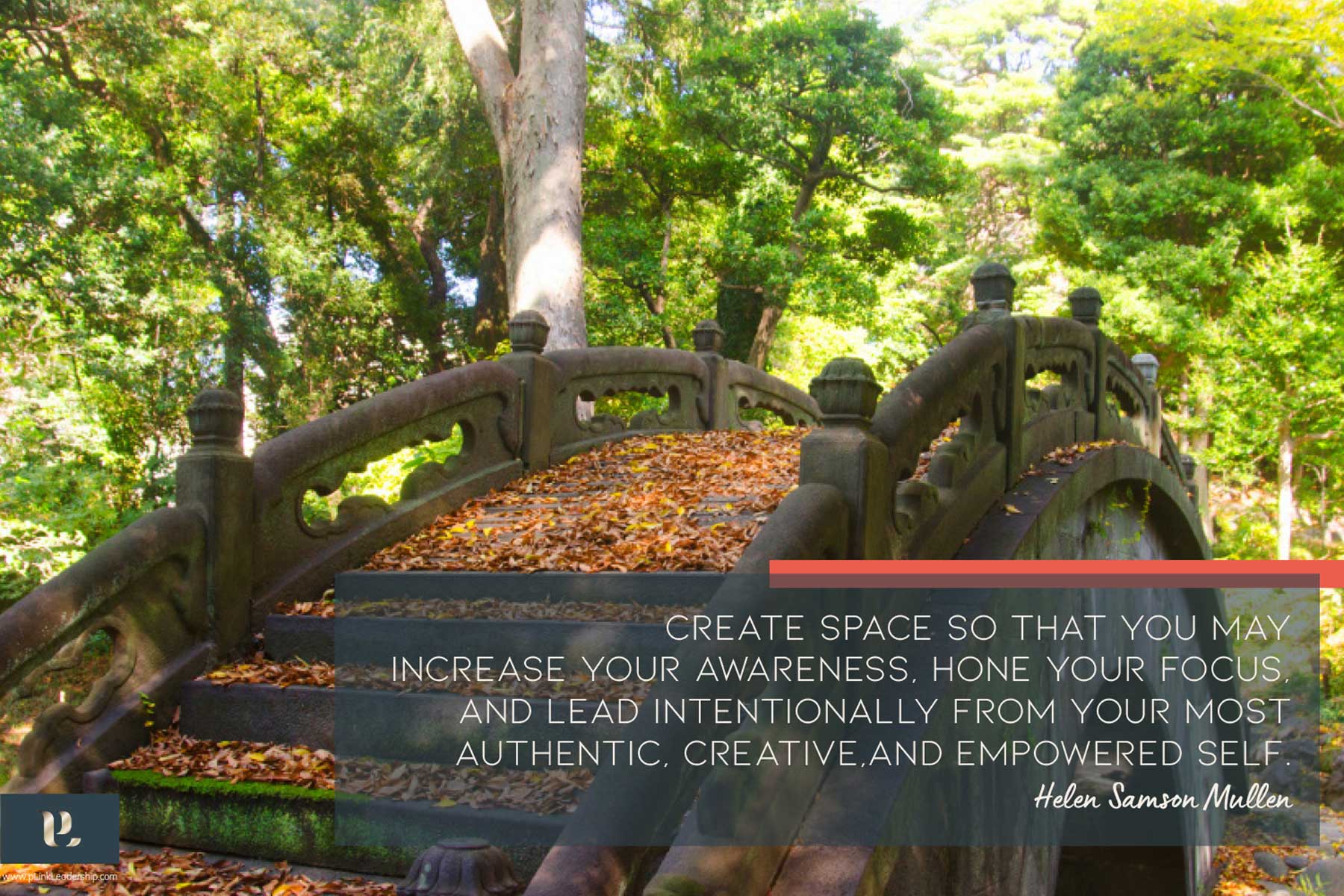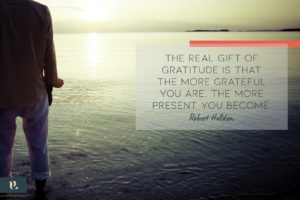“Mindfulness is . . . the miracle which can call back in a flash our dispersed mind and restore it to wholeness so that we can live each minute of life.”
Thich Nhat Hanh
Imagine a full day at the office, and between meetings, you realize you are thirsty. You divert past the vending machine on the way to your next meeting and consider the offers on display. Among the waters and sodas is a new jewel-colored beverage, and through the plexiglass, you spy wording on the front that catches your eye:
“Benefits include, but are not limited to: • Decreased stress and psychological distress in adults • Lower blood pressure and heart rate • Improved immune system functioning • Reduction of chronic pain • Improved sleep • Enhanced mental health and functioning • Increased emotional regulation and self-control • Decreased anxiety, depression, worry, and rumination • Reduced incidence of problem-drinking and symptoms associated with problem-drinking • Enhanced academic achievement and improved ability to focus • Improved social and relational skills • Reduced symptoms of burnout in employees • Enhanced resilience • Decrease in turnover and turnover intentions at work • Enhanced job performance.”
Would you try it? Would you be interested?
While there may not be such a beverage on the market, there is a very simple and elegant practice that can give you the benefits above, in as little as 5 minutes a day…
Mindfulness. In recent years, neuroscience and psychology research has been amassing and documenting benefits that have been celebrated for centuries amongst those following ancient wisdom around this practice. Within our leadership development and coaching practice, we have witnessed the benefits in clients who choose this practice, especially when navigating the current pace of work and life and the waves of change we surf daily.
What is mindfulness? It is described here beautifully by Dr. Jon Kabat-Zinn, Professor Emeritus of Medicine and the creator of the Stress Reduction Clinic and the Center for Mindfulness in Medicine, Health Care, and Society at the University of Massachusetts Medical School.
“Mindfulness means paying attention in a particular way: on purpose, in the present moment, non-judgmentally. This kind of attention nurtures greater awareness, clarity, and acceptance of the present-moment reality. It wakes us up to the fact that our lives unfold only in moments. If we are not fully present for many of those moments, we may not only miss what is most valuable in our lives but also fail to realize the richness and the depth of possibilities for growth and transformation.”
Dr. Jon Kabat-Zinn
Mindfulness is simple, but I would not say necessarily easy. In all the technological advances of the last few years, we can become trained athletes in 24/7 living, bouncing from request, email, text, and instant message to meeting after meeting, rarely taking a breath or a pause to assess where we are going and who we are being in this journey. We can become mindless in our pursuit of productivity. And then there’s our monkey minds at play, tenacious in interminable narrative, which, unobserved or unquestioned, can be tinged by our brain’s natural negativity bias.
So, what do we do? The invitation is to make space for intentional pauses, so that we may be fully aware of what is going on inside of us and how that is informing how we show up and innovate, connect, and actively create our vision.
There are shelves of books on the why and the how – I have two shelves devoted to mindfulness in my office alone! However, to simplify, here are a couple of ideas for incorporating mindfulness into your life (there are links below to other practices and resources for those who’d like to dig deeper):
Create space for intentional pauses and mindful practice.
- Create space: Plan a time and quiet place for the intentional pause or mindful practice. I find it helps to do this right before I get up in the morning, in the middle of my day, at bedtime, or whenever it intuitively fits in. Plan it and commit to the practice – even 5 minutes makes a difference. If you use your phone to set an alarm to prompt you, that works too.
- Practice: There are endless ways to practice – including body scans, following breath, loving-kindness, mantra meditation, guided meditation, walking meditation, nature meditation, mindful eating, and mindfulness in daily activities. There are apps like Calm (Apple App of the Year, 2017) and Headspace that provide a wide variety of practices.
A simple practice to try:
Tactical / Square Breathing (originating from the military): Count to 4 as you inhale, hold for a count of 4 at the end of your inhale, count to 4 as you exhale, hold for 4 counts at the end of the exhale. Repeat several times, counting as you breathe. Notice, without judgment, how you feel at the end of the intentional breathing pause.
However you decide to practice, however many times a day or week, it can be a gift for you and for those around you, as you gain insight and awareness, lean into acceptance and non-judgment, and utilize your intentional pauses to chart your course, moment by moment.
Check out the free mindful meditations and list of further mindfulness resources on our website.



